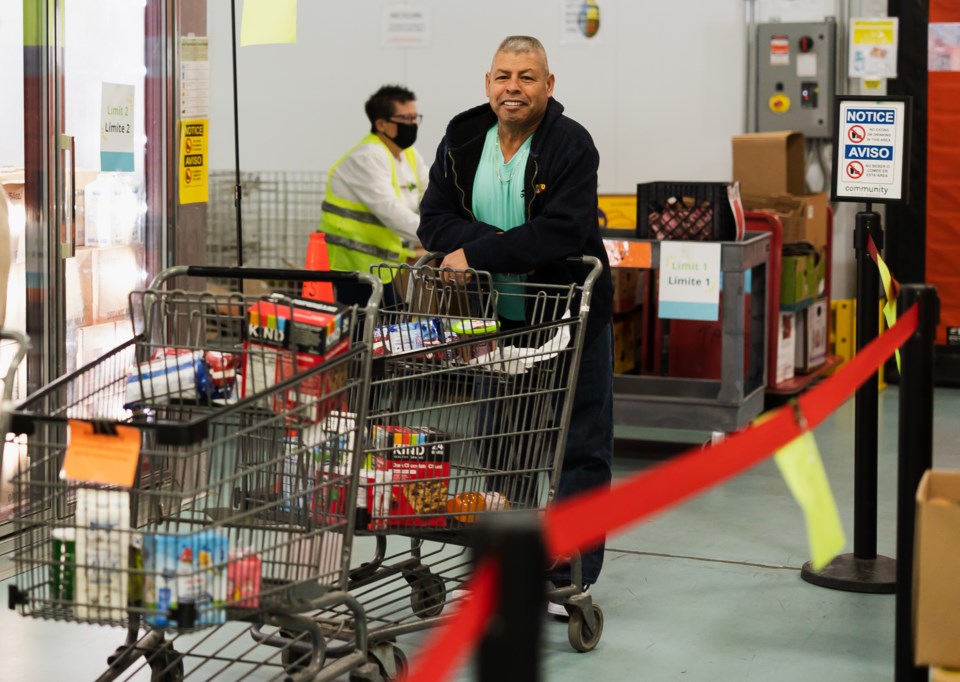The Longmont Leader accepts contributions, photos, letters to the editor, or LTEs, and op-eds for publication from community members, business leaders and public officials on local topics. Publication will be at the discretion of the editor and published opinions do not represent the views of the Longmont Leader or its staff. To submit a contribution, email [email protected].
Throughout the first half of 2023, Community Food Share has seen an exponential increase in demand for our services, leading to record-breaking, all-time highs in the number of individuals and households served monthly.
Increased food costs and supply chain disruptions from the past two years have certainly impacted families, as nearly all of us can attest to after a sobering grocery run. At a time when our dollars don’t go nearly as far at the grocery store and families are turning to food banks and food pantries for more help than ever before, keeping distribution centers stocked has become as important as ever.
Feeding America, the national network of over 200 food banks and 60,000 food pantries, recently reported that in 2022, approximately 49 million people – 1 in 6 – received charitable food assistance.
In the months following the end of SNAP emergency allocations in March, Community Food Share has seen a steady climb in both new enrollments and program visits. This cumulative increase led to the month of June which set a new record for the highest number of unique individuals served in a one-month period through Community Food Share's internal programs. This surpasses the previous record set just a month prior in May, which underscores the escalating need for food resource services in the wake of reduced SNAP allotments. Over the course of 2023, Community Food Share has adopted new hours to allow for serving more individuals, recruited more volunteers, and purchased historic amounts of food to ensure that everyone who walks through their doors receives the nutrition they need.
The fallout from the end to SNAP emergency allotments has been felt by a wide variety of families and individuals in Boulder and Broomfield Counties. When this change took effect in March, a variety of neighbors expressed this sentiment with us. A quote that sums up the rising demand over the last few months comes from a mother of three who lives in Broomfield; “I started receiving SNAP last April (2022) which has provided for my needs, so I haven't needed to rely on Community Food Share as much. However, those funds have gone down starting this month so I anticipate returning monthly [to Community Food Share] to help with groceries.”
In this time of heightened need, the assistance from programs like “The Emergency Food Assistance Program” (TEFAP) are a tremendous help in aiding Community Food Share and the 1,200 other food banks across the state, keep their shelves stocked with food when families come for help.
TEFAP is a federal program that provides food at no cost to people in need through food banks, food pantries, soup kitchens, and emergency shelters. For years, TEFAP has helped ensure that food banks can serve nutritious food procured from American farmers and ranchers to their communities. It is truly the cornerstone of the emergency food supply for food banks across the country as the program provides about 30% of the food distributed through Feeding America food banks and local hunger-relief programs.
As demand for food remains high at food banks, a reliable and continuous stream of TEFAP foods is essential.
Federal nutrition programs like TEFAP and the Supplemental Nutrition Assistance Program (SNAP) are funded through the Farm Bill, which Congress reauthorizes every five years. The current Farm Bill expires in September. We urge Congress to strengthen SNAP benefits and TEFAP funding to support households experiencing food insecurity.
Community Food Share and our partners stand ready to serve Coloradans in need; but charitable donations alone can’t ensure that families get enough to eat. We are counting on Congress to join us in meeting the needs of Coloradans by fully funding TEFAP and strengthening SNAP in this year’s Farm Bill.
Signed,
Kim Da Silva, CEO
Community Food Share



